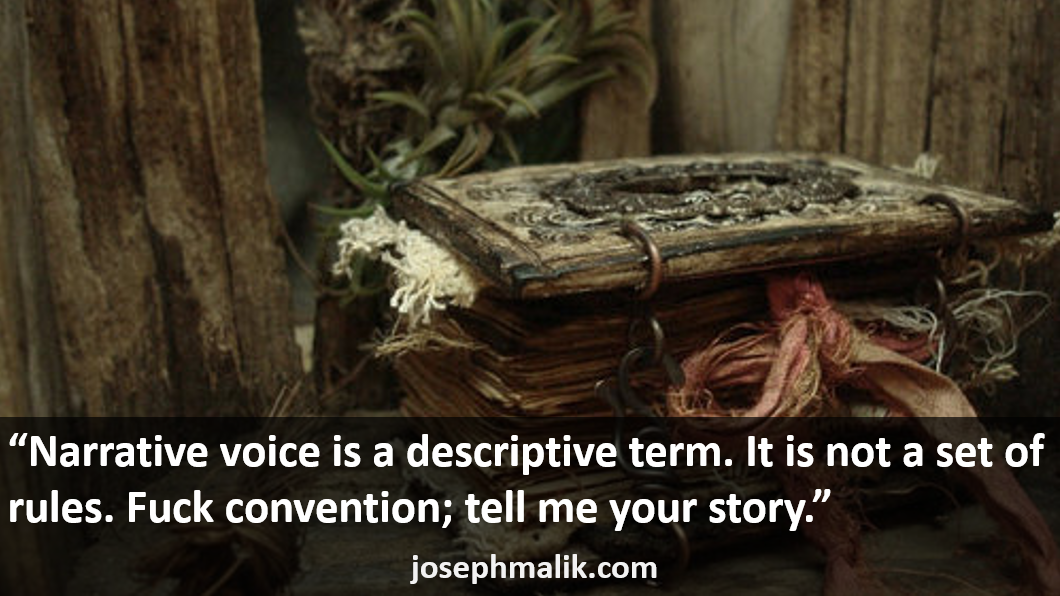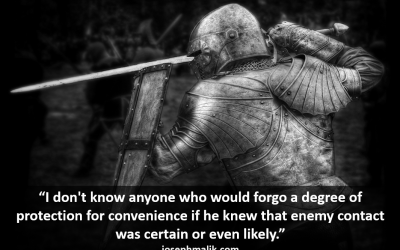I should probably write something.
It’s been another busy year. I just came off of two back-to-back tours, which is why you’re not seeing many (okay, any) updates. I write a lot for work. In fact, I read and write pretty much nonstop at work — think of my job as writing and giving glorified book reports, and you’re not far off. “Sir, here’s what I’ve read; here’s what it means to me; here’s why it’s important to you.”
The problem with being a hobbyist fantasy writer and also being a professional writer is that when you get done reading and writing all day, the last thing you want to do is write. Or read.
I’ll be at NorWesCon again on the military track panels and doing some combat classes as well.
Dragon’s Trail is just sitting here. It’s done. It just needs an editor and a cover. I have really been doing nothing lately except sleeping and going to the gym. I’m probably going to hire an editor this year and push the damned book out the door. It’s been 25 years I’ve been working on this thing. I can practically recite parts of it.
Don’t be me. Write. Push your shit out the door. Write more. Craft your world as you go along, and don’t worry about the petty bullshit; people probably aren’t paying as close attention as you think they are. Anyway, that’s what editors are for.
I want to do a thing and talk about voice at some point, but I’m not really sure where to do it and I’m not sure if I want to piss off as many of the “established” writers out there as I think I will if I write what I want to write.
You know what? Screw it. I’ll do it here.
I am sick. To death. Of limited perspective writing.
FUCK LIMITED PERSPECTIVE.
There, I said it.
I don’t know where this came from. I don’t know who decided, or when, that fantasy novels have to be written from one perspective at a time, and you have to do a scene break each time you change characters.
But everything — EVERY-GODDAMN-THING — is written this way. Writers with blogs on how to write — some of whom are insane, by the way — tearing apart anyone’s work who doesn’t stick to these arbitrary and ridiculous rules. And it makes me crazy. (I blame GRRM and seriously, fuck that guy.)
This limited perspective concept is one of those manifestations of stylistic asshattery that future Comparative Lit professors will look back on: “You can see from the page-break perspective shifts that this book was written in the early-21st-Century fantasy style. . ..” That’s this.
You don’t have to do this. In fact, you never did. The greatest fantasy books ever written were written without it. In fact, in composition class 20 years ago, nobody ever mentioned narrative voice or POV. Not once. Now it’s apparently some kind of hard and fast rule. And it’s insane to think so; it’s just a trend. And fuck trends.
What follows is an excerpt from The Princess Bride, by William Goldman, written in 1973. Watch the head-hopping. The book is written in omniscient voice, which means that Goldman is sitting in your living room telling you all this.
Italics are mine to show Goldman’s head-hopping; he never really leaves the narrator’s POV, but looks through the eyes of the characters — he, as the narrator, knows what they’re thinking. Because he’s the narrator. He’s telling the story.
—
“I have already learned everything from you,” said the Sicilian. “I know where the poison is.”
“Only a genius could have deduced as much.”
“How fortunate for me that I happen to be one,” said the hunchback, growing more and more amused now. (Vizzini’s POV)
“You cannot frighten me,” said the man in black, but there was fear all through his voice. (Narrator’s POV)
“Shall we drink then?”
“Pick, choose, quit dragging it out, you don’t know, you couldn’t know.”
The Sicilian only smiled at the outburst. Then a strange look crossed his features and he pointed off behind the man in black. “What in the world can that be?” he asked.
The man in black turned around and looked. “I don’t see anything.”
“Oh, well, I could have sworn I saw something, no matter.” The Sicilian began to laugh.
“I don’t understand what’s so funny,” said the man in black.
“Tell you in a minute,” said the hunchback. “But first let’s drink.” And he picked up his own wine goblet.
The man in black picked up the one in front of him. They drank.
“You guessed wrong,” said the man in black.
“You only think I guessed wrong,” said the Sicilian, his laughter ringing louder. “That’s what’s so funny. I switched glasses when your back was turned.”
There was nothing for the man in black to say. (Narrator’s POV)
“Fool!” cried the hunchback. “You fell victim to one of the classic blunders. The most famous is ‘Never get involved in a land war in Asia,’ but only slightly less well known is this: ‘Never go in against a Sicilian when death is on the line.’”
He was quite cheery until the iocane powder took effect.
The man in black stepped quickly over the corpse, then roughly ripped the blindfold from the Princess’s eyes.
“I heard everything that happ—” Buttercup began, and then she said “Oh” because she had never been next to a dead man before. “You killed him,” she whispered finally.
“I let him die laughing,” said the man in black. “Pray I do as much for you.” He lifted her, slashed her bonds away, put her on her feet, started to pull her along.
“Please,” Buttercup said. “Give me a moment to gather myself.” The man in black released his grip.
Buttercup rubbed her wrists, stopped, massaged her ankles. She took a final look at the Sicilian. “To think,” she murmured, “all that time it was your cup that was poisoned.”
“They were both poisoned,” said the man in black. “I’ve spent the past two years building up immunity to iocane powder.”
Buttercup looked up at him. He was terrifying to her, masked and hooded and dangerous; (Buttercup’s POV) his voice was strained, rough. “Who are you?” she asked.
—
Excerpt from The Hitchhiker’s Guide to the Galaxy, without equal the greatest sci-fi portal fantasy series ever written. Again, italics mine. Watch the ball and the cups. Ready?
Ford stared at Arthur, who began to think that perhaps he did want to go to the Horse and Groom after all. (Arthur’s POV)
“But what about my house . . . ?” he asked plaintively.
Ford looked across to Mr. Prosser, and suddenly a wicked thought struck him.(Ford’s POV)
“He wants to knock your house down?”
“Yes, he wants to build . . .”
“And he can’t because you’re lying in front of his bulldozer?”
“Yes, and . . .”
“I’m sure we can come to some arrangement,” said Ford. “Excuse me!” he shouted.
Mr. Prosser (who was arguing with a spokesman for the bulldozer drivers about whether or not Arthur Dent constituted a mental health hazard, and how much they should get paid if he did) looked around. He was surprised and slightly alarmed to see that Arthur had company. (Prosser’s POV)
“Yes? Hello?” he called. “Has Mr. Dent come to his senses yet?”
“Can we for the moment,” called Ford, “assume that he hasn’t?”
“Well?” sighed Mr. Prosser.
“And can we also assume,” said Ford, “that he’s going to be staying here all day?”
“So?”
“So all your men are going to be standing around all day doing nothing?”
“Could be, could be. . .”
“Well, if you’re resigned to doing that anyway, you don’t actually need him to lie here all the time do you?”
“What?”
“You don’t,” said Ford patiently, “actually need him here.”
Mr. Prosser thought about this. (Narrator’s POV; Prosser’s head, though.)
“Well, no, not as such . . .” he said, “not exactly need . . .”
Prosser was worried. He thought that one of them wasn’t making a lot of sense. (Prosser’s POV)
Ford said, “So if you would just like to take it as read that he’s actually here, then he and I could slip off down to the pub for half an hour. How does that sound?”
Mr. Prosser thought it sounded perfectly potty. (Prosser’s POV)
“That sounds perfectly reasonable . . .” he said in a reassuring tone of voice, wondering who he was trying to reassure. (Prosser’s POV)
“And if you want to pop off for a quick one yourself later on,” said Ford, “we can always cover for you in return.”
“Thank you very much,” said Mr. Prosser, who no longer knew how to play this at all, “thank you very much, yes, that’s very kind . . ” He frowned, then smiled, then tried to do both at once, failed, grasped hold of his fur hat and rolled it fitfully round the top of his head. He could only assume that he had just won. (We are now firmly in Prosser’s head, because this is where the really funny stuff is happening.)
“So,” continued Ford Prefect, “if you would just like to come over here and lie down . . .”
“What?” said Mr. Prosser.
“Ah, I’m sorry,” said Ford, “perhaps I hadn’t made myself fully clear. Somebody’s got to lie in front of the bulldozers, haven’t they? Or there won’t be anything to stop them driving into Mr. Dent’s house, will there?”
“What?” said Mr. Prosser again.
“It’s very simple,” said Ford, “my client, Mr. Dent, says that he will stop lying here in the mud on the sole condition that you come and take over from him.”
“What are you talking about?” said Arthur, but Ford nudged him with his shoe to be quiet.(Narrator’s POV, but only Arthur could know that Ford nudged him, so . . . Arthurs POV?)
“You want me,” said Prosser, spelling out this new thought to himself, (back to Prosser’s POV) “to come and lie there . . .”
“Yes.”
“In front of the bulldozer?”
“Yes.”
“Instead of Mr. Dent.”
“Yes.”
“In the mud.”
“In, as you say, the mud.”
As soon as Mr. Prosser realized that he was substantially the loser after all, it was as if a weight lifted itself off his shoulders: this was more like the world as he knew it. He sighed.
“In return for which you will take Mr. Dent with you down to the pub?”
“That’s it,” said Ford, “that’s it exactly.”
Mr. Prosser took a few nervous steps forward and stopped.
“Promise?” he said.
“Promise,” said Ford. He turned to Arthur.
“Come on,” he said to him, “get up and let the man lie down.”
Arthur stood up, feeling as if he was in a dream. (Back to Arthur’s POV)
Ford beckoned to Prosser, who sadly, awkwardly, sat down in the mud. He felt that his whole life was some kind of dream and he sometimes wondered whose it was and whether they were enjoying it. The mud folded itself round his bottom and his arms and oozed into his shoes. (Aaaaand, back to Prosser’s POV)
Ford looked at him severely.
“And no sneaky knocking Mr. Dent’s house down while he’s away, all right?” he said.
“The mere thought,” growled Mr. Prosser, “hadn’t even begun to speculate,” he continued, settling himself back, “about the merest possibility of crossing my mind.”
He saw the bulldozer drivers’ union representative approaching and let his head sink back and closed his eyes. He was trying to marshal his arguments for proving that he did not now constitute a mental health hazard himself. He was far from certain about this—his mind seemed to be full of noise, horses, smoke and the stench of blood. This always happened when he felt miserable or put upon, and he had never been able to explain it to himself. (Prosser’s POV) In a high dimension of which we know nothing, the mighty Khan bellowed with rage, but Mr. Prosser only trembled slightly and whimpered. (Narrator’s POV) He began to feel little pricks of water behind his eyelids. Bureaucratic cock-ups, angry men lying in mud, indecipherable strangers handing out inexplicable humiliation and an unidentified army of horsemen laughing at him in his head—what a day. (BAM! Back to Prosser in the SAME GODDAMN PARAGRAPH.)
What a day. (No clue whose POV this is, and you know what? Doesn’t matter; could be anyone’s.) Ford Prefect knew that it didn’t matter a pair of dingo’s kidneys whether Arthur’s house got knocked down or not now. (BOOM, back to Ford!)
Arthur remained very worried. (Aaaaand, Arthur, via Narrator)
“But can we trust him?” he said.
“Myself I’d trust him to the end of the Earth,” said Ford.
“Oh yes,” said Arthur, “and how far’s that?”
“About twelve minutes away,” said Ford, “come on, I need a drink.”
—
So.
Fuck you and fuck your anti-head-hopping bullshit.
Here’s what I think. Ready?
I think that writers think that people don’t read enough anymore. I think a big part of this is that a lot of writers don’t read enough anymore.
Seriously. I think that writers don’t give their readers enough credit.
I think that this whole fascistic push for tight, clear POV with page and even goddamned chapter breaks for each character is a result of A.) a few readers being too goddamn dense to figure out whose head they’re in; B.) writers thinking most readers are stupid; C.) most writers sucking at delineating narrator and character voice; and D.) George R.R. Martin saying that omniscient is antiquated and fuck that guy.
When you read my writing, I want to give the impression that I am in your house, sitting on your sofa, holding a glass of something ninety proof or better with ice in it and telling you a story. You, as the reader, are the kids sitting on the floor in front of me, listening in rapt fascination.
I’m telling you a story. That’s my voice.
That’s also Adams’s voice, and Goldman’s voice. And the voice of every great novelist who ever lived up until GRRM. And fuck that guy, in case I didn’t make it clear where I stand on him.
Narrative voice is a descriptive term. It is not a set of rules.
Any questions, leave them below.
Go forth. Tell your story. Do it well.






